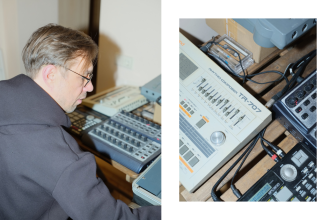Watching the precise, energetic movements of Mantas Tolpežninkas at the decks, especially when his performance takes place in the dead of night, it is hard to believe that the DJ is well into his forties and will soon mark three decades spent bent over, in noise and darkness, in other words, in very harsh conditions. Many younger colleagues can’t match his pace, nor his instinct and taste for undiscovered, valuable tracks.
The second member of the duo Partyzanai, Gvidas Banevičius, dons the DJ cloak a bit less often these days but his love for music and his ability not only to discover real gems but also to masterfully fuse one find with another, a third, a fourth in his sets is no weaker than it was back when the two young men first met in the still-fresh Kaunas district of Šilainiai.
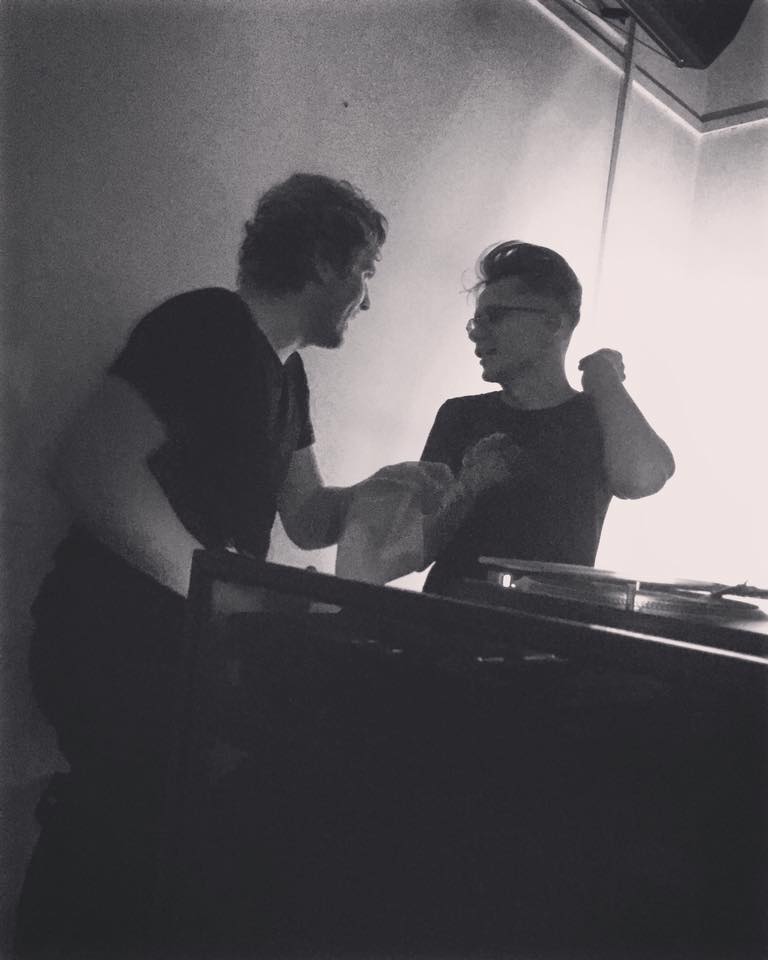
I hope my calculations are correct and I’m not exaggerating when I say that the duo’s label experiment, which grew into a lifelong project, is the oldest still-active record label of its kind in Lithuania. The initiative that began back in 2005 hasn’t brought Mantas and Gvidas any astonishing financial returns, but to not fall out, not go bankrupt, and still see the talents they discovered and supported continue to successfully create, not only in Lithuania but around the world, is a remarkable kind of dividend.
Although he often plays in his home country, Mantas has been living in Germany with his family for many years now, and Gvidas has settled down in Kaunas again after some time away, so we connected online for a chat about the joys and challenges of music releasing. Fittingly, Partyzanai also had an online launch – back in 2005, the world was riding a wave of so-called netlabels, a trend that inspired initiatives in Lithuania such as Sutemos, which helped raise at least one full generation of music lovers.
“The first impulse came when Gvidas and I returned from the United Kingdom and caught the electro wave,” Mantas recalls. Indeed, the duo became the flag-bearers of Stereo 45, a short-lived venue in the capital, and hosted the Revolt series that were almost educational in terms of broad soundscape. The duo also had architect friends Aivaras Jonaitis and Vytis Puronas (Vytis became a fantastic sound engineer – ed.), or Soya Modified. A track from that project, “Remember Tomorrow”, became their debut single and is listed on the online music encyclopedia Discogs as the very first Partyzanai release, under the catalog number PZ001.
“We wanted Soya Modified to go beyond live performances, to bring their electronica to more people, and at the same time to prove that it is possible to release your work without the help of the market giants,” the interviewees recalled. By the way, this release was free – at the time piracy was thriving (although it hasn’t disappeared), everyone was looking for music on Napster or Soulseek, so the labels saw more sense in just giving music away legally.
Soya Modified eventually became Soy Farm, and in 2010 the label’s Partyzanai Pop division released a vinyl of the duo, “Obsession”. It was the first record, but not the first physical album in its history. The first was a CD by the vocalist Giedrius Širka – or Golden Parazyth – now considered an icon of his generation. This was in 2006, shortly after the duo heard him at a party at the Kaunas Yacht Club, or maybe Terra X. “I remember I said, ‘Look, Mantas, here’s the Lithuanian LCD Soundsystem,’” Gvidas laughs.
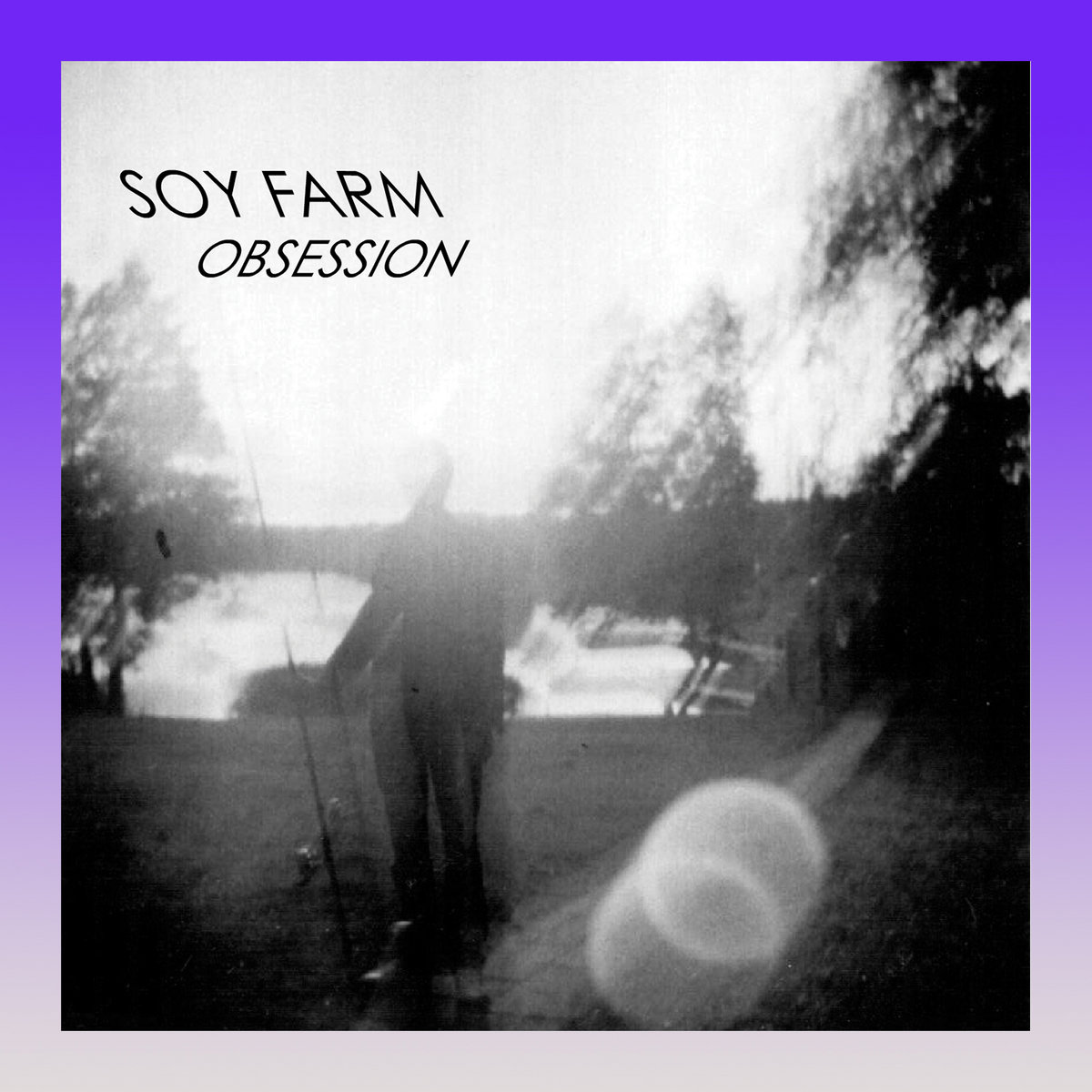
Partyzanai Pop is the first and leading, both in terms of volume and significance, among the many sub-labels under the record label, each dedicated to a different genre or wave of music. From dub to electroclash, from hard techno rhythms to bright house melodies, from contemporary to darkwave – labels at this record company matter less than quality. “A new division is usually born like this: we receive new music that doesn’t quite fit into any existing category, so we create a new one. Then, that sub-label lives on for as long as it remains relevant. This way, there’s more order, and change becomes the only constant,” Mantas explains, adding that the parent name Partyzanai is just an umbrella, and that it doesn’t do any publishing because it would be unsustainable to go with fads.
Are trends bad? Definitely not. “Trends make music exciting; if everyone played the same thing, it would be terribly boring.” So, although Justas Kontrimas offers a broad perspective on the electronic music being released in Lithuania today in the following pages, a look back at the last 20 years of the scene could easily be grasped by just listening to what Mantas and Gvidas have released.
“We ourselves, as DJs, played heavier electronic music, but we really wanted to collaborate with indie creators,” the men recall the prehistory of Partyzanai Pop. That’s how Partyzanai became the first label of Benas Aleksandravičius-ba., and the limited edition of the vinyl “Pasikeist EP”, released in 2014, is now considered a collector’s item. Without Letters, Local Blood, Colours of Bubbles, Akli – Mantas and Gvidas’ sharp-sightedness helped clubgoers discover guitars, and to their players to expand their audience by injecting more variety into their instrumental music with electronic remixes.
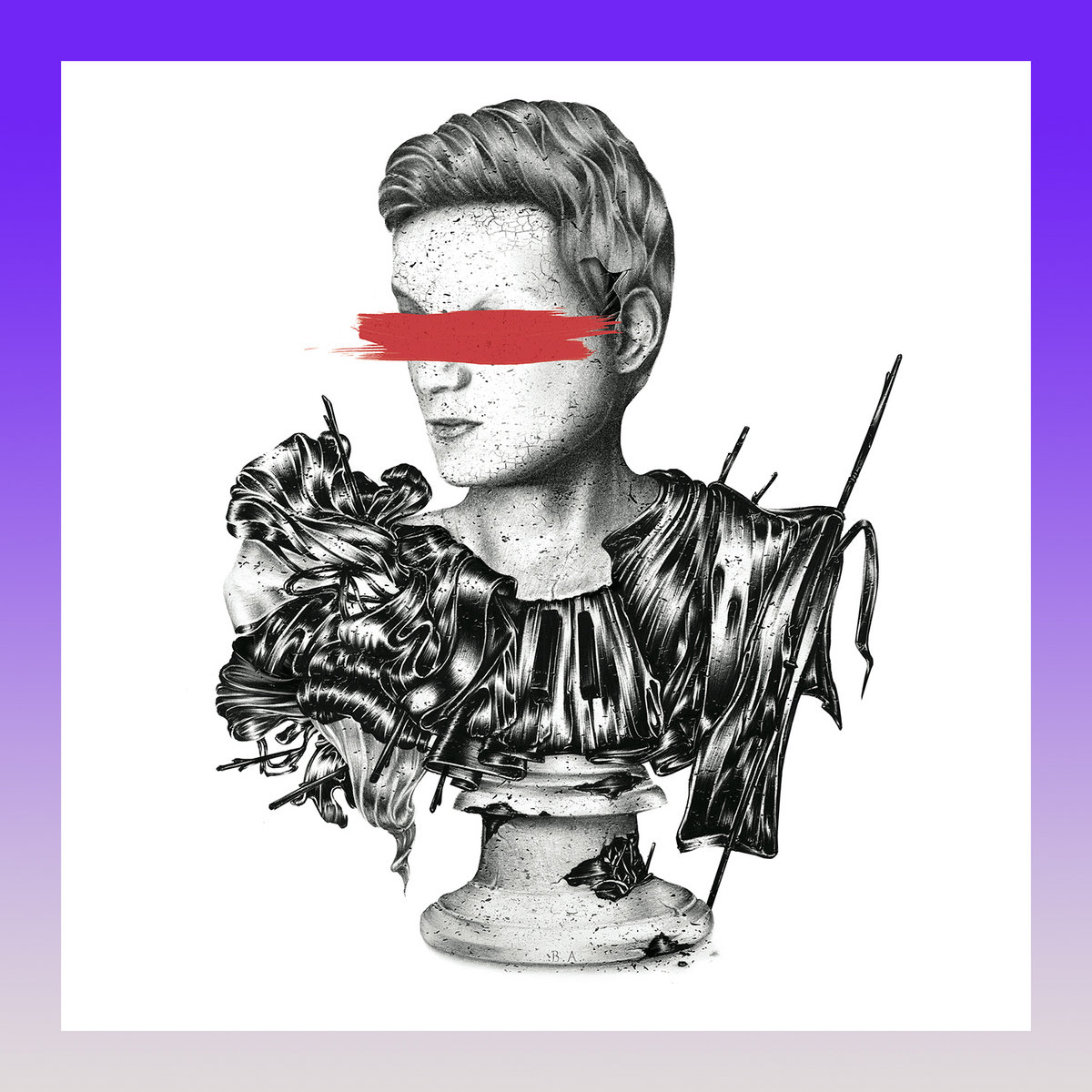
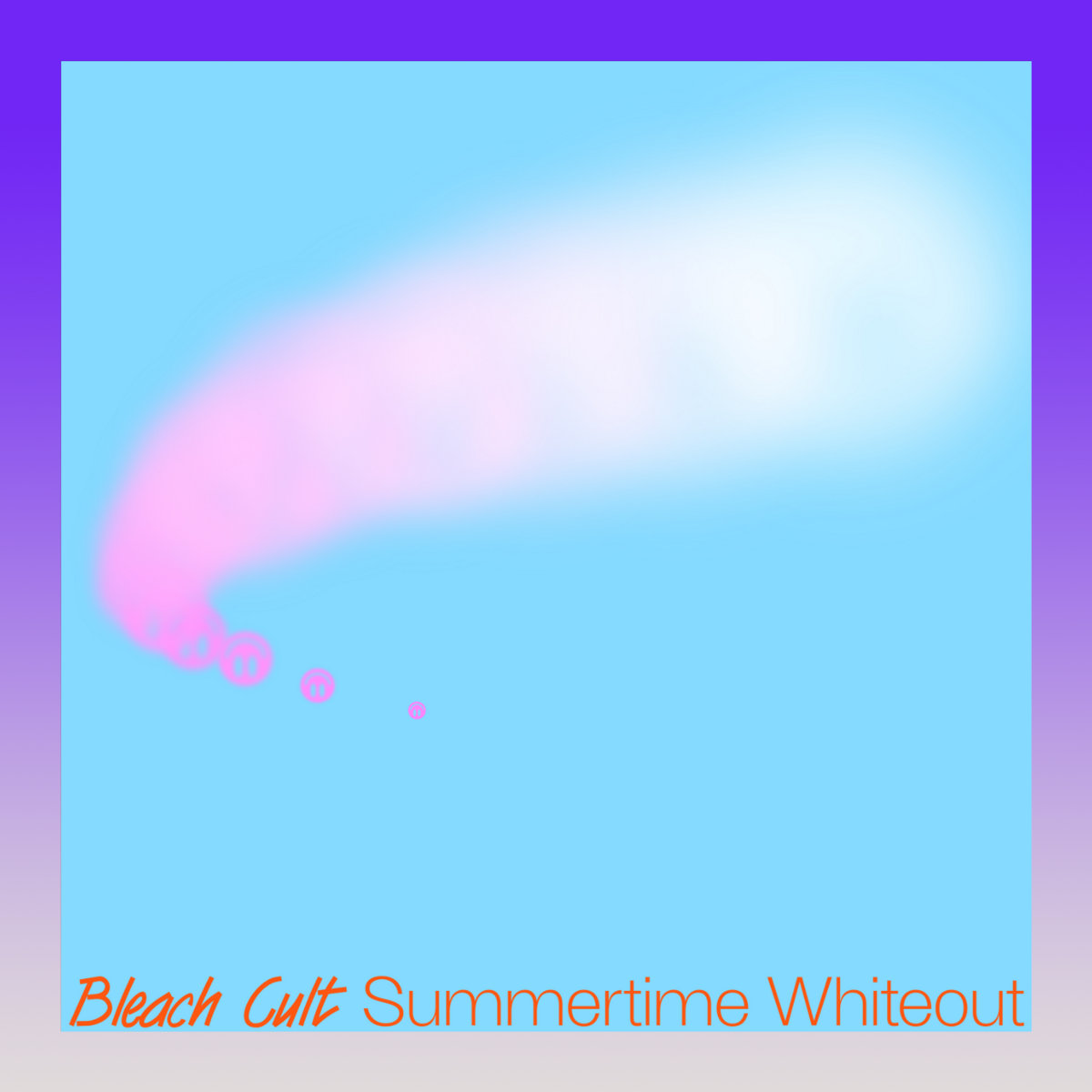
It is important to mention the “Summertime Whiteout” record by Bleach Cult – the same Vytis Puronas – released in 2020 under the banner of Partyzanai Pop, the ambient textures of which flirt with the psychedelic 1970s, adolescent dilemmas, and the still-safe warmth of the sun. The album’s “Neon Sugar” track was featured in the presentation of Prada autumn/winter 2025 collection, proving how accurate Mantas and Gvidas are at predicting future trends. By the way, there are also missed opportunities! Mantas really wanted to release the music of Tautvydas Gaudėšius, who at the time was signing as Junior a, now as FC Baseball, but Gvidas disagreed.
When it comes to money, the truth is that all the Partyzanai publishing revenues are reinvested into future projects. In so many words: the old works sustain the new ones, “But that’s not enough, we have to invest additionally.” Until recently, when Partyzanai needed to sign a contract with artists, they would send the text once signed in blood by the Joy Division with Factory Records: “The musicians own everything, the company owns nothing.” In these times of deepfakes, scams, and other dreadful things, it seems very uncertain and unsafe, but for many years, mutual trust worked.
Another constant but changing factor that I would like to discuss when talking about “guerrilla” publishing is album and single covers. Over the past twenty years, there has been no shortage of graphic design experiments, and the label has worked with more than a few well-known names in the field today, including Povilas Utovka, Tadas Karpavičius, and Domantė Nalivaikaitė. The duo openly admits they can’t offer fees that match market rates, but they always encourage designers to approach the task in a way that ensures the cover becomes a strong addition to their portfolio.
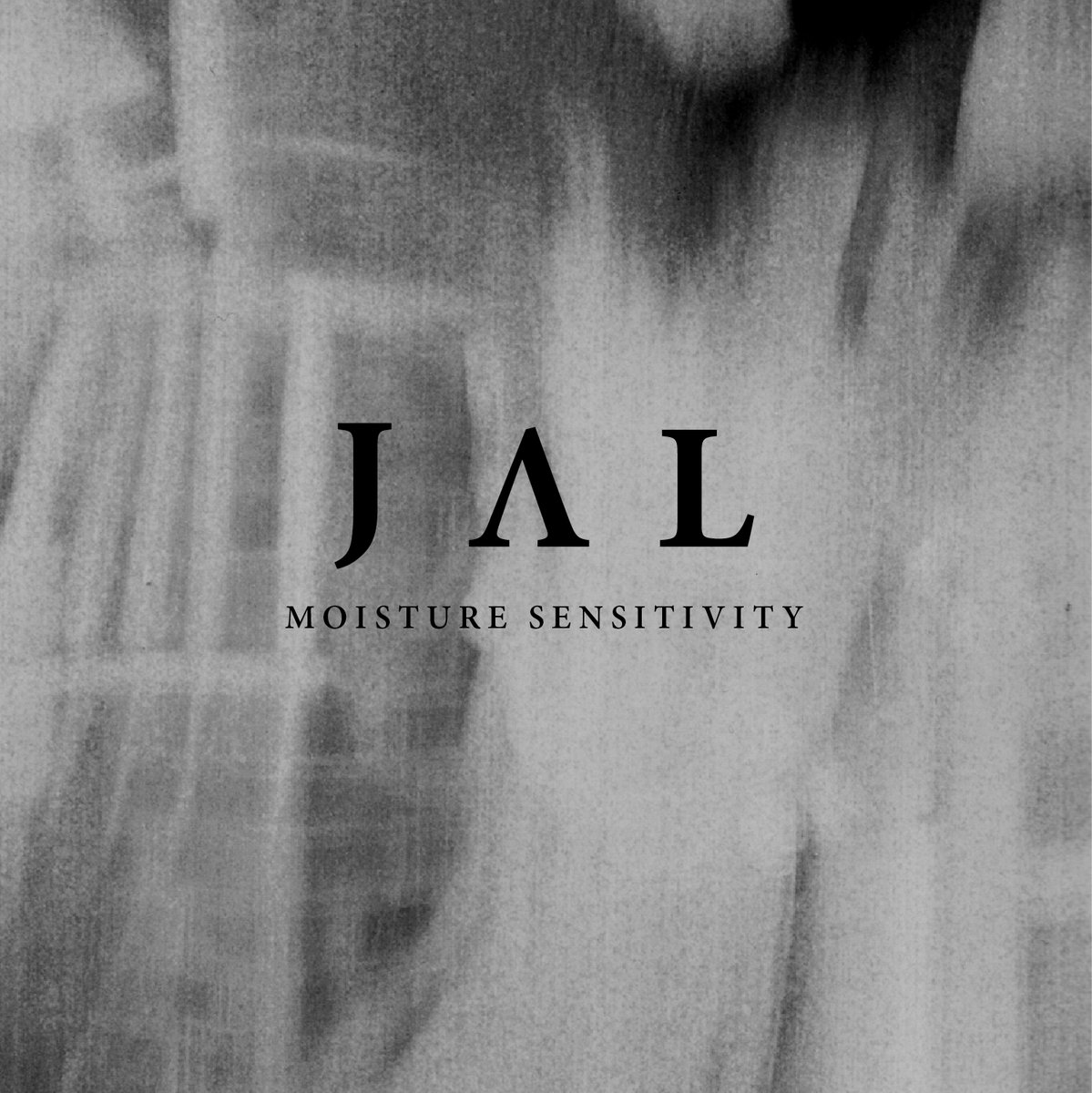
Perhaps it’s not only their similarly “eternally thirsty” approach to music, but also the fact that they live in separate countries (although for a time both were based in Vilnius) that ensures the smooth and productive collaboration of Partyzanai, even after three decades of knowing each other. And the fact that publishing never became their main profession or source of income isn’t necessarily a bad thing. Looking at the challenges faced by major record labels and reading historical accounts of behind-the-scenes relationships, it seems that it’s precisely in small, independent, and trust-based collectives that both artists and publishers can truly remain themselves.
In the near future, Partyzanai is planning a new venture along with Arnas Gataveckas, the founder of the Discotag store. This involves record distribution, which will help Lithuanians enter global markets faster and more efficiently.
“Yes, yes, we still go out to the proverbial courtyard to hang out,” Gvidas assures us at the end of the conversation. Mantas adds that whenever they have the chance, they always meet at the Kultūra café. The next such meeting, to which you are also invited, is on May 17th, when the aforementioned DJ and “Discotag” tandem will present themselves in Kaunas. Read more here.



